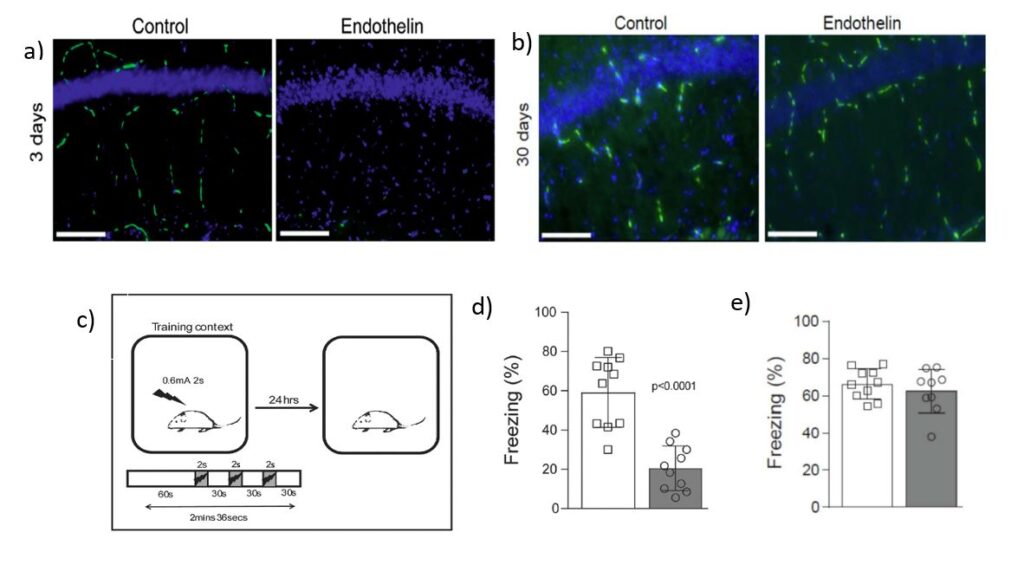
Dementia is a major public health concern in aging population. Growing evidence suggests that blood vessel-related problems (known as vascular dysfunction) play a role in developing cognitive impairment in elderly. There is limited understanding of mechanisms behind vascular dysfunction in small vessels due to the unavailability of appropriate mouse models. For the first time, we have developed a mouse model (by intraventricular bilateral injection of ET-1 in C57BL/6 mice) that will be helpful to understand vascular abnormalities in small vessels. The vasoconstriction in small vessels nearby the lateral ventricles caused low expression of CD 31, a marker for endothelial cell in vessels indicating vasoconstriction after 3 days of injection (Fig. a) leading to memory impairment observed as a decrease in freezing response in contextual fear conditioning test (Fig. d). However, recovery in freezing behaviour seen after 30 days of ET-1 injection (Fig. e) by resumed expression of CD31 in vessels indicated the importance of vascular event in synaptic function. So, this mouse model mimics the human pathology transient ischemia.
Last Updated on September 17, 2022
References :
Latha Diwakar, Ruturaj Gowaikar, Keerthana Chithanathan, Barathan Gnanabharathi, Deepika Singh Tomar, Vijayalakshmi Ravindranath. Endothelin-1 mediated vasoconstriction leads to memory impairment and synaptic dysfunction. Scientific Reports (2021).
Latha Diwakar, Ruturaj Gowaikar, Keerthana Chithanathan, Barathan Gnanabharathi, Deepika Singh Tomar, Vijayalakshmi Ravindranath. Endothelin-1 mediated vasoconstriction leads to memory impairment and synaptic dysfunction. Scientific Reports (2021).
![]()
